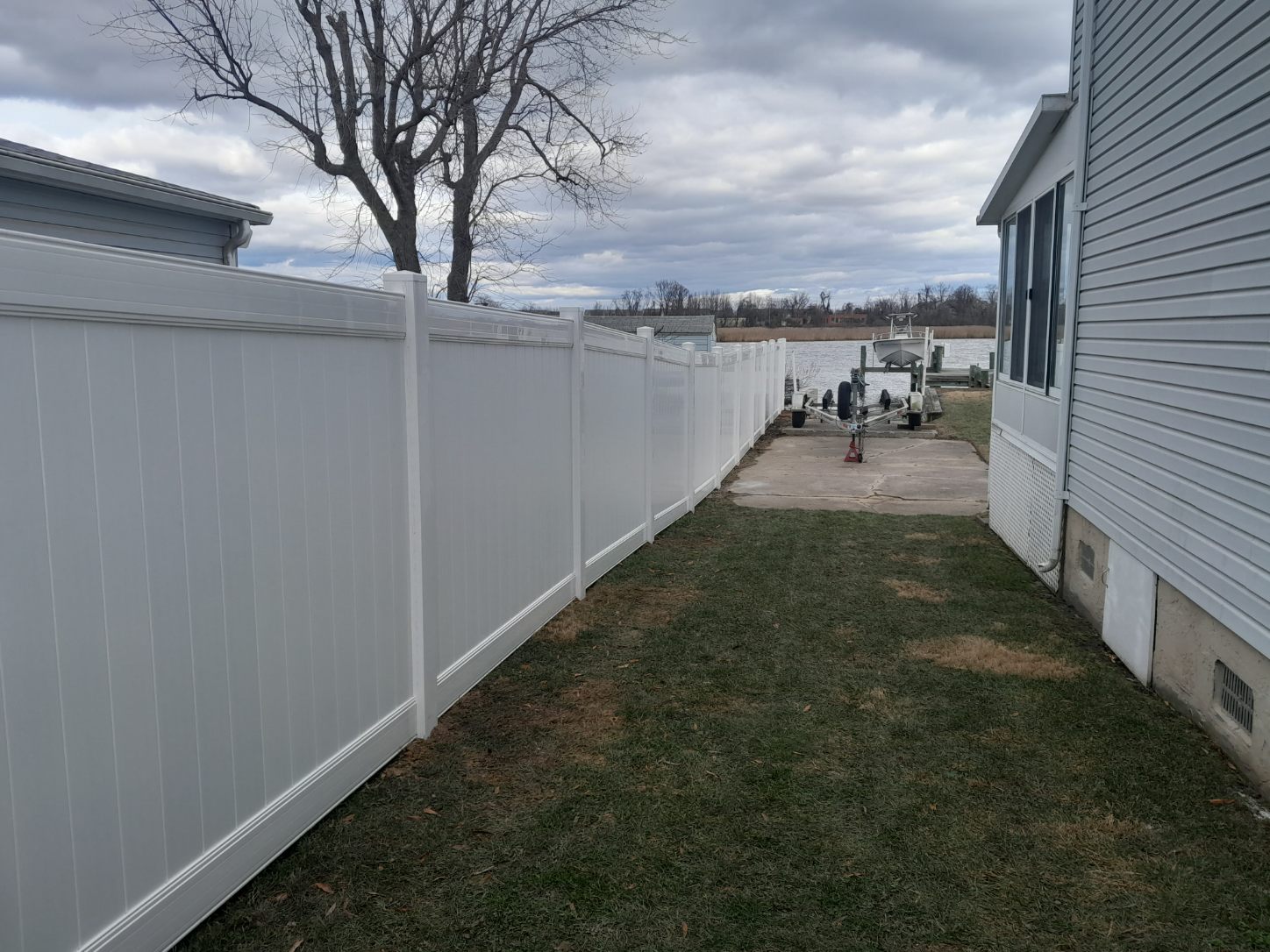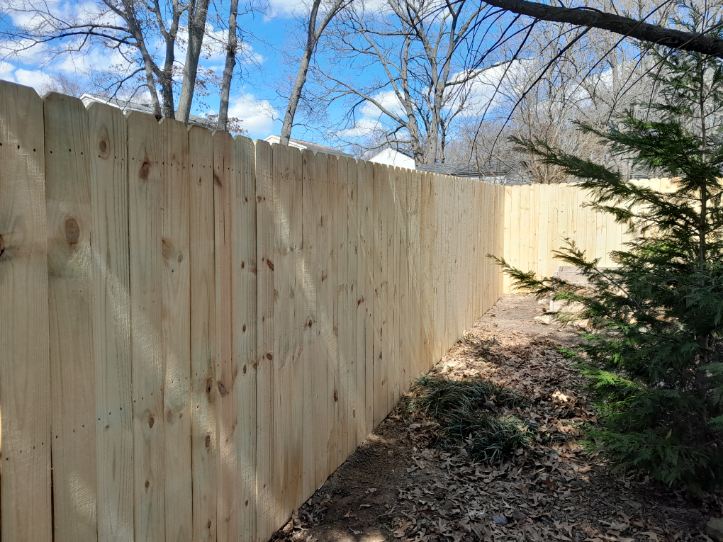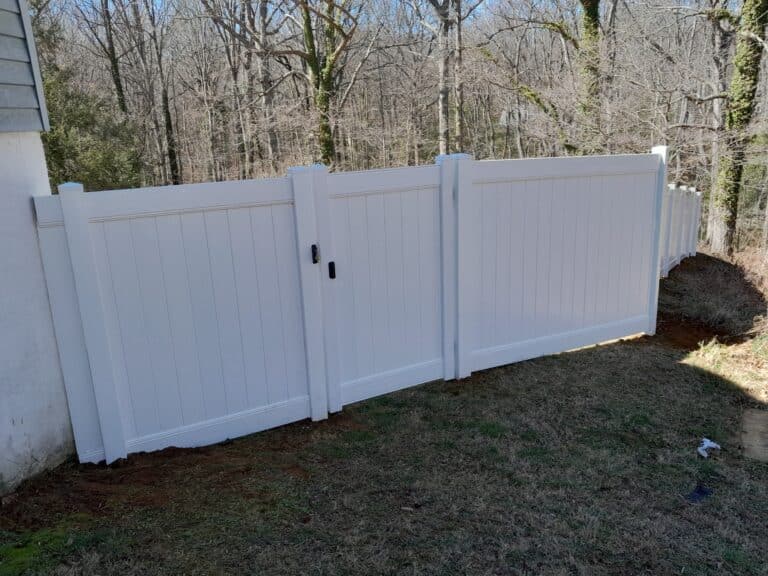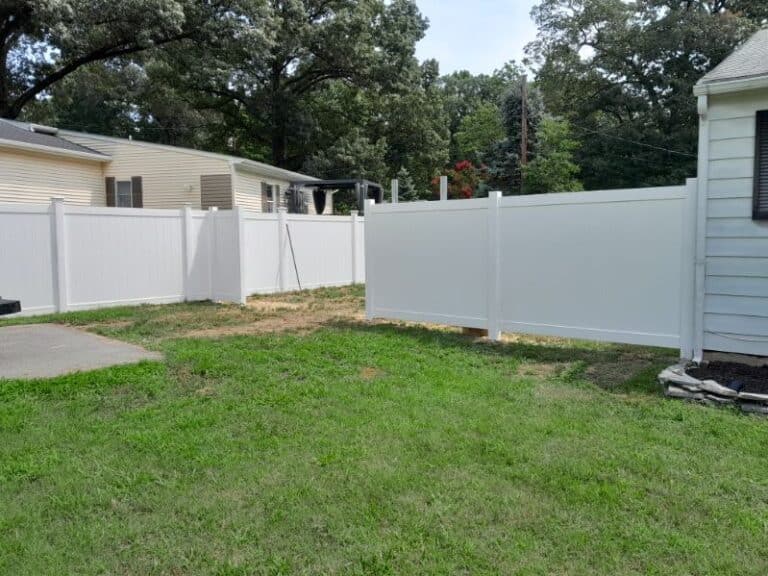Expert guidance from All Around Fence – serving Anne Arundel County’s waterfront communities for over 25 years
Living along the scenic shores of Orchard Beach in Anne Arundel County offers stunning waterfront views, but it also presents unique drainage challenges for fence installations. Improper fence placement can create serious flooding problems, property damage, and costly violations of local drainage codes. As Maryland’s trusted fence experts, we’ve helped countless Orchard Beach homeowners avoid these critical drainage mistakes.
Understanding Orchard Beach’s Unique Drainage Challenges
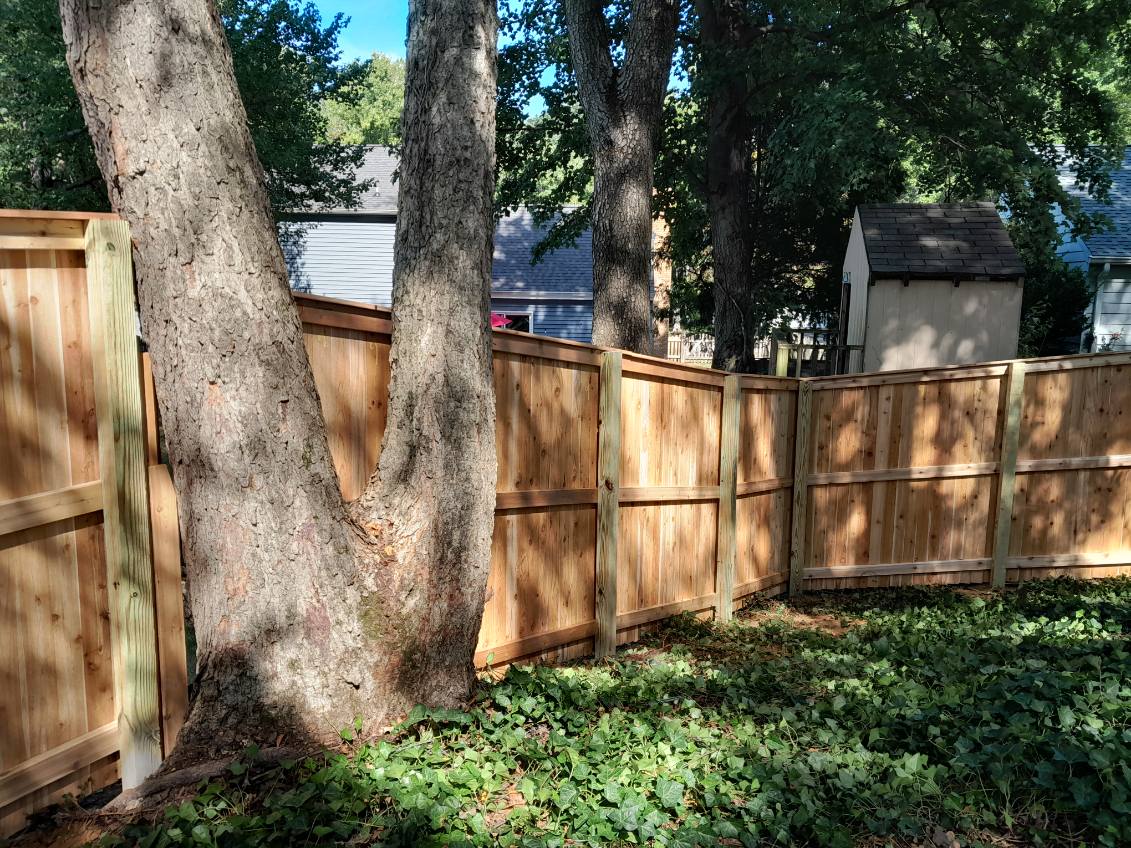
Orchard Beach’s waterfront location creates a complex drainage environment that many fence contractors don’t properly understand. The area’s proximity to the Chesapeake Bay, combined with seasonal storms and tidal influences, means that even minor installation errors can have major consequences.
The Perfect Storm of Drainage Issues
Much of Orchard Beach sits at low elevation, making properties naturally susceptible to water accumulation during heavy rains. Bay tides can back up stormwater systems, creating pressure that overwhelms drainage when fences block natural water flow. The soil composition varies throughout Orchard Beach, with some areas having poor drainage characteristics that require special fence installation techniques. Maryland’s weather patterns bring intense rainfall events that can quickly overwhelm compromised drainage systems, making proper fence installation critical for flood prevention.
Maryland’s Critical Fence Drainage Requirements
Anne Arundel County has established specific drainage regulations that every Orchard Beach fence installation must follow. These aren’t suggestions – they’re mandatory requirements with real enforcement consequences.
Mandatory Clearance Standards
Drainage Swales: All fencing must maintain a minimum 6-inch clearance above any drainage swale or depression designed to channel stormwater. This clearance ensures water can flow freely during heavy rain events that are common along the Chesapeake Bay.
Ground Level Clearance: Fences require at least 1-inch clearance above normal ground level throughout the installation. This prevents water from pooling against fence panels and allows natural sheet flow to continue across your property.
Properties near water features may have additional setback requirements that affect fence placement near natural or constructed drainage channels, making professional consultation essential for waterfront installations.
Enforcement and Penalties
Anne Arundel County actively enforces these drainage requirements through regular inspections and neighbor complaints. Violations can result in mandatory fence removal and reinstallation, fines ranging from $500 to $2,000 per violation, legal liability for water damage to neighboring properties, and delays in property sales due to compliance issues. The county takes these violations seriously because improper drainage affects entire neighborhoods, not just individual properties.
How Improper Fence Installation Causes Flooding
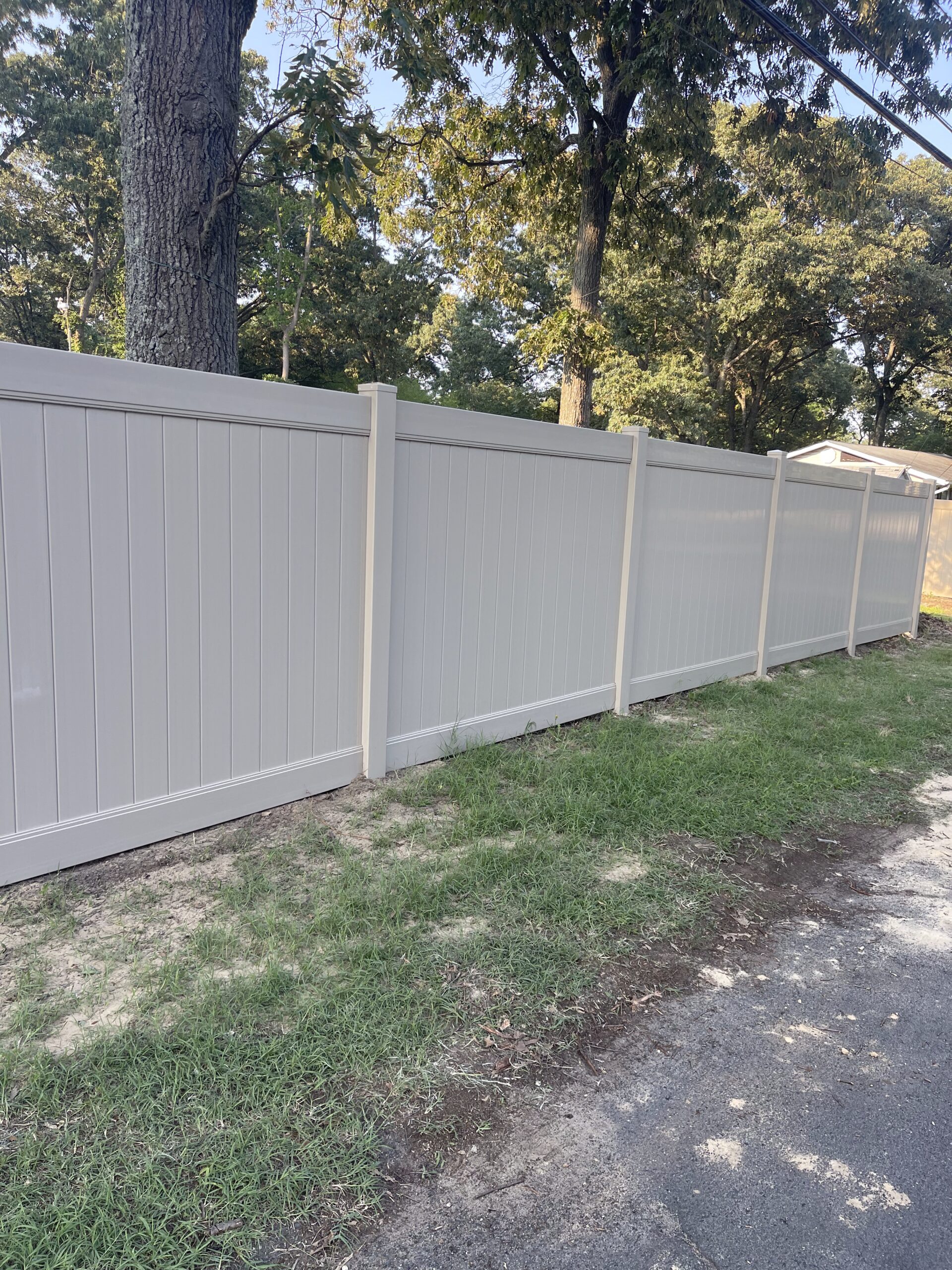
Understanding the mechanics of drainage problems helps property owners recognize potential issues before they become expensive disasters.
Blocking Natural Water Flow
Water naturally flows across properties in thin sheets during rainfall. Fences installed too close to ground level act like dams, forcing water to pool instead of flowing to intended drainage areas. Drainage swales – the low areas designed to channel water – become useless when fences block them, causing water to back up and create flooding in areas that should remain dry. When fences force water to change direction, it often ends up in unintended areas like basements, foundations, or neighbor’s properties, creating liability issues and expensive damage.
Creating New Drainage Problems
Solid fence panels can trap water in low spots, creating permanent wet areas that breed mosquitoes and damage landscaping. When fences redirect water flow, the concentrated runoff can cause severe erosion that undermines fence posts and damages property. Perhaps most seriously, pooled water near house foundations can cause basement flooding, foundation settling, and structural damage that costs thousands to repair. These problems often develop gradually, making early detection and prevention crucial for Orchard Beach homeowners.
Preventing Mosquito Breeding Through Proper Drainage
Standing water from poor fence drainage creates ideal mosquito breeding conditions, which Anne Arundel County health officials actively monitor and regulate.
Health Department Enforcement
County health inspectors investigate standing water complaints and can order immediate corrections to fence installations that create breeding sites. Properties with mosquito breeding issues face mandatory treatment programs and ongoing monitoring until drainage problems are resolved. West Nile virus and other mosquito-borne diseases make proper drainage a community health issue, not just a property concern, which is why the county takes enforcement seriously.
Prevention Strategies
Maintaining required clearances eliminates the standing water that mosquitoes need for breeding. Installing French drains or other drainage improvements can solve existing problems while accommodating new fence installations. Choosing fence materials and designs that promote rather than hinder drainage helps prevent future mosquito issues and keeps your property in compliance with health regulations.
Protecting Against Lawn Erosion and Property Damage
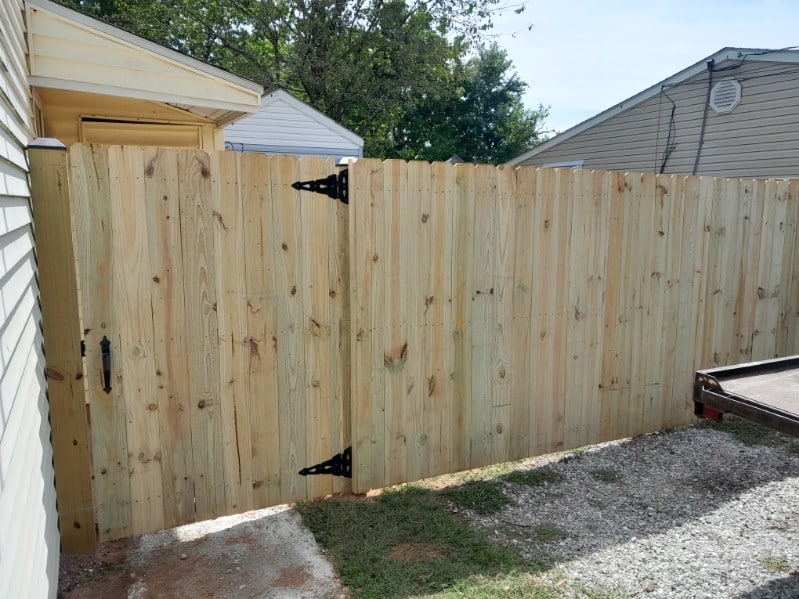
Orchard Beach’s valuable topsoil and established landscaping require protection from erosion caused by improper fence drainage.
Erosion Risk Factors
When fences channel water into narrow streams instead of allowing natural sheet flow, the increased velocity causes severe erosion that can destroy landscaping and undermine structures. Properties with natural slopes face increased erosion risk when fences redirect water down steep areas, creating gullies and washouts. Pooled water saturates soil, making it more susceptible to erosion when it finally does drain, leading to permanent landscape damage.
Long-Term Property Protection
Proper fence drainage protects existing landscaping investments and prevents costly soil replacement that can run into thousands of dollars. Erosion and drainage problems significantly impact property values, while proper drainage enhances long-term value and marketability. Protecting driveways, walkways, and other hardscape features from water damage saves thousands in replacement costs and maintains your property’s curb appeal.
Solutions for Waterfront Properties
Orchard Beach’s waterfront location requires specialized approaches that account for tidal influences and storm surge potential.
Tidal Consideration Techniques
Fence clearances must account for high tide conditions and storm surge that can raise water levels significantly above normal. Materials and installation techniques must withstand saltwater exposure that accelerates corrosion and structural failure in standard fencing materials. Waterfront properties face additional water pressure from wind-driven storms that can overwhelm marginal drainage systems, making robust drainage design essential.
Stormwater Management Integration
Chain link and aluminum fencing allow maximum water flow while providing security and boundary definition for waterfront properties. Solid panels like vinyl and wood can be positioned to channel water toward appropriate drainage areas rather than blocking flow, but this requires careful planning and professional expertise. Working with existing stormwater infrastructure ensures fence installations enhance rather than compromise overall drainage performance throughout the neighborhood.
Professional Installation Requirements
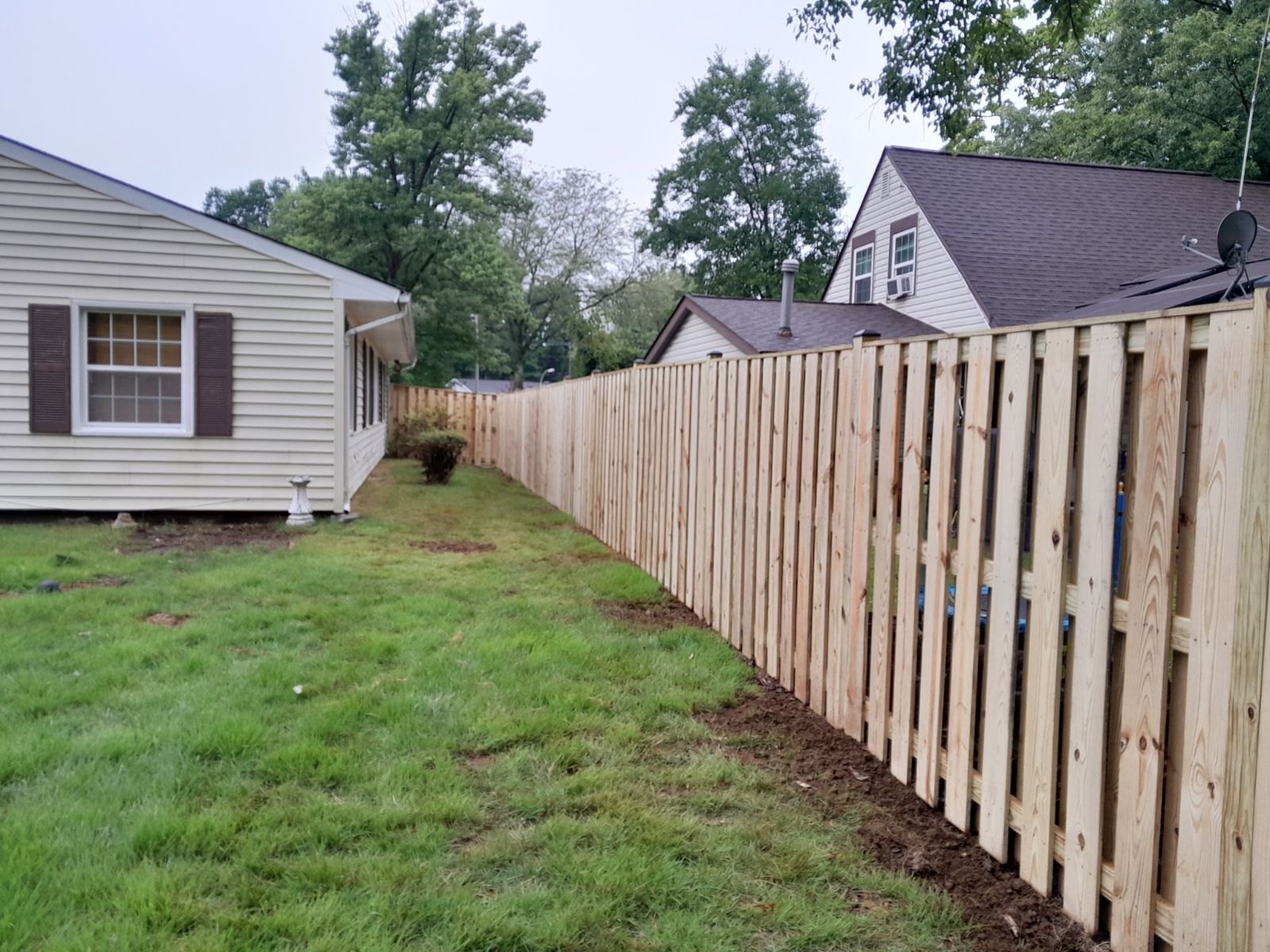
The complexity of Orchard Beach’s drainage challenges makes professional installation essential for avoiding costly problems.
Site Assessment Requirements
Professional contractors survey property elevations and water flow patterns before determining fence placement, ensuring compliance with all local requirements. Understanding soil composition and drainage characteristics helps determine appropriate installation techniques and clearance requirements specific to your property’s conditions. Professional contractors ensure all installations meet current Anne Arundel County requirements and obtain necessary permits, protecting you from future legal issues. If you’re in a neighboring area like Chestnut Hill Cove, be sure to review fence permit requirements specific to your community to avoid delays or violations.
Installation Techniques
Waterfront properties often require deeper post installations to maintain stability in shifting soils while preserving drainage pathways. French drains, gravel channels, and other drainage enhancements can be integrated with fence installations to solve existing problems and prevent future issues. Using quality materials like pressure-treated lumber, corrosion-resistant aluminum, and UV-stable vinyl ensures long-term performance in challenging waterfront conditions while maintaining required drainage clearances.
Frequently Asked Questions
Can I install a fence myself in Orchard Beach, or do I need a permit?
Anne Arundel County requires permits for most fence installations, especially in waterfront areas like Orchard Beach. DIY installation risks violating drainage codes, creating liability for flood damage to neighbors, and facing costly correction orders. Professional installation ensures proper permits, compliance with drainage requirements, and protection from legal issues.
My neighbor's fence is causing water to pool in my yard. What can I do?
Document the drainage problem with photos and contact Anne Arundel County's code enforcement division. Property owners are legally responsible for ensuring their fences don't redirect water onto neighboring properties. The county can order corrections and impose fines for violations. Consider working with your neighbor to find a solution before involving authorities.
What's the difference between swale clearance and ground clearance requirements?
Ground clearance (minimum 1 inch) applies to normal yard areas and prevents general water pooling. Swale clearance (minimum 6 inches) applies to designed drainage channels and depressions that carry larger volumes of stormwater. Swales require higher clearance because they handle concentrated water flow during storms.
Can I use solid privacy fencing near the water, or do I need chain link?
Solid fencing like vinyl or wood privacy panels can be used near water if properly installed with adequate drainage clearances. However, you may need additional drainage enhancements like French drains or strategic gaps to maintain proper water flow. Chain link and aluminum fencing naturally allow better water flow but provide less privacy.
How do I know if my existing fence is causing drainage problems?
Warning signs include standing water that doesn't drain within 24 hours after rain, new wet spots in previously dry areas, increased mosquito activity, erosion patterns near fence lines, basement moisture issues, or neighbor complaints about water redirection. If you notice these problems, contact a professional for drainage assessment and potential corrections.
Protect Your Orchard Beach Property Today
Don’t let poor fence drainage turn your waterfront investment into a flooding liability. Proper installation that complies with Maryland’s drainage requirements protects your property value while avoiding costly violations and neighbor disputes.
Ready for expert drainage assessment? Contact All Around Fence at (443) 838-9374 for your free consultation. Our family-owned team has over 25 years of experience solving Orchard Beach’s unique drainage challenges while delivering quality fences you can count on.

